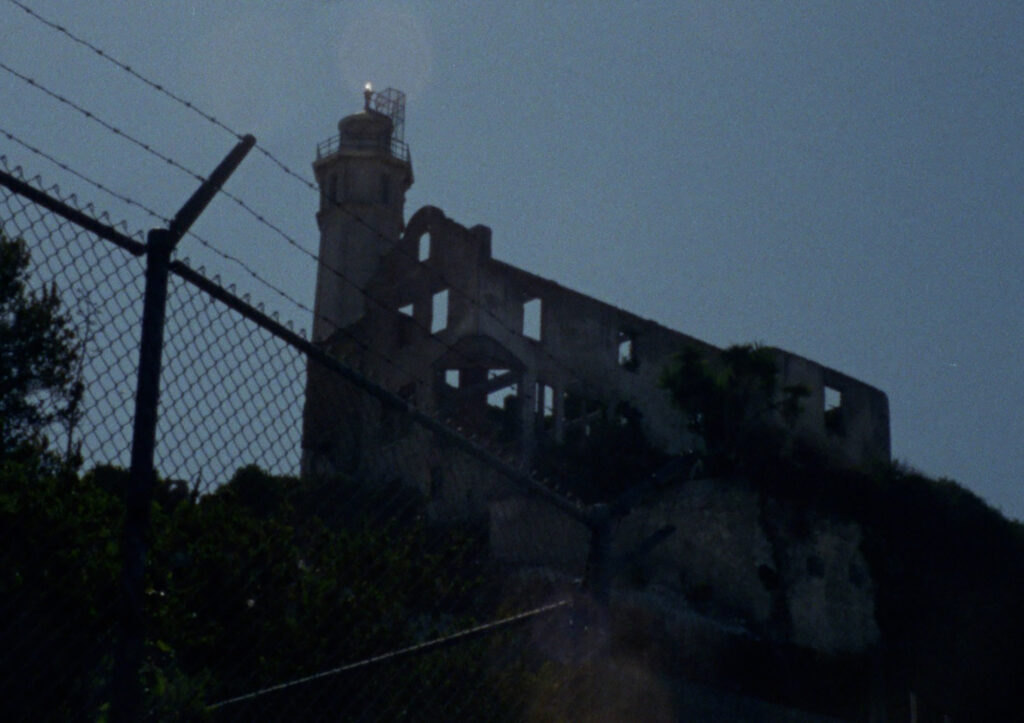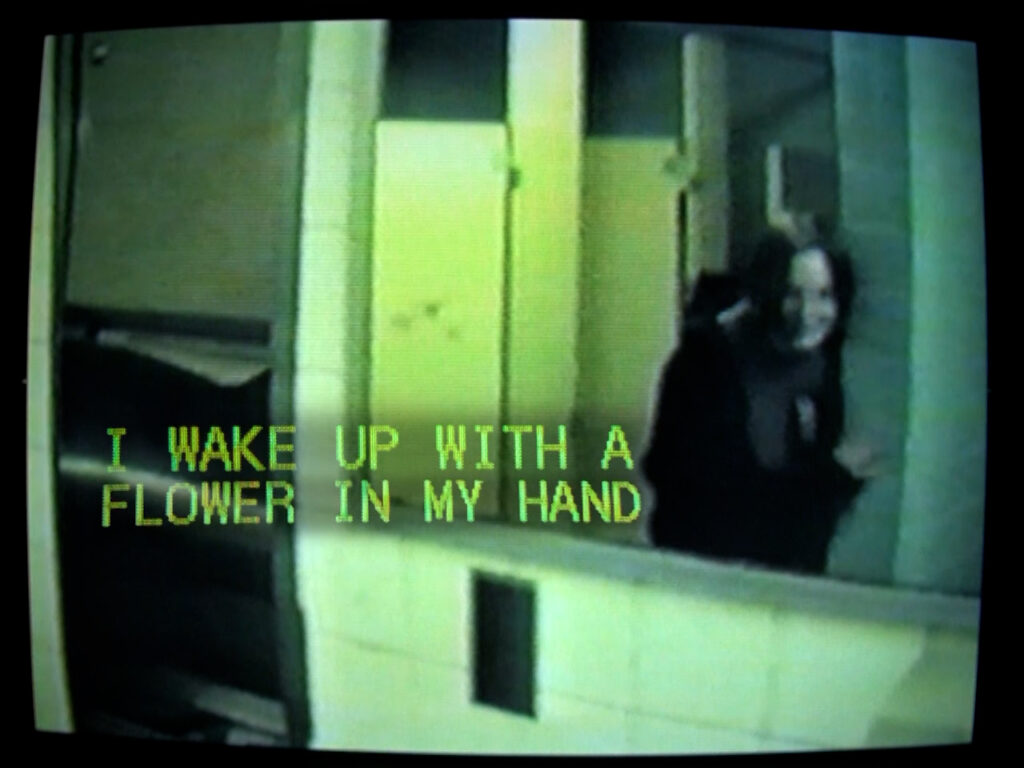Now Available: Four New Films by Malic Amalya
Posted August 21st, 2024 in Announcements, New Acquisitions, New Digital Files, New Films, News / Events
Canyon Cinema is pleased to announce that Malic Amalya’s Living Lessons in the Museum of Order (2023), along with three additional films, are now available for rent:



Living Lessons in the Museum of Order (2023, 21 minutes, color, sound, 16mm or digital file)
Tourism in an age of mass incarceration and mass extinction.
Living Lessons in the Museum of Order examines the carceral logics of the Orca Encounter at SeaWorld San Diego and the “Doing Time” tour of the former Alcatraz prison in the San Francisco Bay.
Alcatraz is part of a larger industry of prison tourism that treats prisons and jails as real-life haunted houses. Through an immersive audio tour with stories from prisoners and guards, “Doing Time” reinforces racist beliefs that police and prisons “keep us safe.” Gently challenging this narrative, Alcatraz has recently hosted art and educational exhibitions that question the prison industrial complex. Likewise, Alcatraz’s buildings are permanently marked with evidence of Indigenous resistance to settler colonialism during the Occupation of Alcatraz from 1969 to 1971.
In contrast to the empty prison cells and crumbling buildings at Alcatraz, SeaWorld is full of marine life in above-ground tanks with see-through walls. Under pressure from activists and exposés on the cruelty of their practices, SeaWorld’s marketing focuses on their habitat conservation and animal rescue efforts, as well as hyperbole about how their scientific research and education materials help marine animals – both captive and wild.
Juxtaposing original 16mm footage, promotional VHS and 16mm footage, and analog video feedback, Living Lessons in the Museum of Order explores the tensions between public fantasies and exploitative practices, as well as between rhetorical updates and continued institutional policies, within the two California entertainment empires.

I Wake Up with a Flower in My Hand (2021, 9 minutes, color, sound, digital file)
In January 1996, high school sophomore outcasts, Kasten Searles and Mothra (aka Malic Amalya) aired their cable access television show “Killer Janitors” across the Burlington, Vermont area, where they lived. Filming on a VHS-C camcorder, they taped their show in their high school hallways, library, and cafeteria; through culvert pipes; on bus rides home; while wandering downtown; and during weekend sleepovers. Edited on an analogue VHS system at the local cable access station, their final cut was a single, 30-minute episode, influenced by punk, alternative, and riot grrrl subcultures, daytime and late-night TV, B movies, and art class. I Wake Up with a Flower in My Hand is a 25-year anniversary remix of Killer Janitors. Using all original footage and adding no special effects, the new cut focuses on how the best friends saw each other and understood themselves within the context of their friendship, high school, home lives, and a world beyond their small-town confinements — felt but not yet touched.

Song for Rent, After Jack Smith (2018, 7 minutes, color, sound, 16mm or digital file)
“Every American Flag is a Warning Sign.” — Demian DinéYazhi´
In his 1969 film, Song for Rent, Jack Smith starred as “Rose Courtyard,” a drag character based on Rose Kennedy. “God Bless America” looped in the background as a pile of red objects dropped from Rose’s lap. In this adaptation, “Barbarella Bush” joins Rose in a campy denunciation of US nationalism.
Open captions and audio description make Song for Rent, After Jack Smith accessible to a wider audience, while also playing a critical role in the film’s structure.

FlyHole (2017, 6 minutes, b&w, sound, digital file)
In this dual projection slide show of collaged imagery, FlyHole tells the story of a housefly who transitions into a man in order to cruise gay bars. Text and images are appropriated from the March 1985 issue of the adult, gay digest magazine, Manscape, including illustrations by Mike Kuchar.


